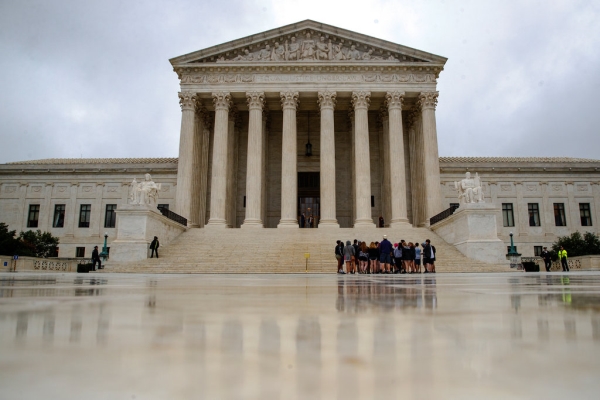
Broad Coalition from Across Political Spectrum Agrees that Government Abuse of Asset Forfeiture Must End; Across Country Police Seize and Forfeit Property from Mostly Low-Income People
NEW YORK—(ENEWSPF)—September 11, 2018
Contacts: Tony Newman and Theshia Naidoo
The Drug Policy Alliance (DPA) and a diverse group of national and state groups filed an amicus brief today in the United States Supreme Court in Timbs v. Indiana, a case wrestling with issues at the heart of civil asset forfeiture abuse. Mr. Timbs was arrested during an undercover drug enforcement operation, pled guilty, paid approximately $1,200 in fees, and was sentenced to home detention and probation. Months after his arrest, the state initiated a civil proceeding to forfeit a personal vehicle that he had purchased with the proceeds of his father’s life insurance policy. The trial court in Indiana concluded that the forfeiture was unconstitutional under the Eighth Amendment’s Excessive Fines Clause. The Indiana Supreme Court disagreed, stating that the Excessive Fines Clause does not apply to the state, and it reinstated the forfeiture. Mr. Timbs filed a petition for review, and the United States Supreme Court agreed to hear the case.
The amicus brief filed by DPA brings together groups across the political spectrum in the call to restrain governmental overreach and abuse of the civil forfeiture program. Signatories to the brief include the National Association for the Advancement of Colored People, The Brennan Center for Justice at NYU Law School, Americans for Prosperity, Law Enforcement Action Partnership, FreedomWorks, Independence Institute (Colorado), Libertas (Utah), Colorado Criminal Defense Bar, Drug Policy Forum of Hawai’i, Rio Grande Foundation (New Mexico) and Alabama Appleseed. This broad-based and ideologically diverse group has united to argue that the Excessive Fines Clause of the Eighth Amendment was designed to safeguard against the very abuses of power which are so prevalent in civil asset forfeiture.
Though federal asset forfeiture may have originally been intended to cripple drug-trafficking organizations and high-level operatives, in practice, this has not panned out. Rather, ordinary people, often with little or no connection to criminal activity, are frequently the targets of asset seizures. Most seizures involve small dollar amounts, not huge sums of cash seized from kingpins, and largely occur during routine traffic stops. Most seizures go uncontested – not because there is no valid claim – but because the cost of retaining a lawyer and challenging the seizure may be prohibitive or may far surpass the value of the seized property. Worse, the deck is stacked against property owners who challenge forfeiture proceedings: the government must meet a relatively low evidentiary standard to forfeit property, and typically, it is the owner who has the burden of proving the property’s innocence.
Theshia Naidoo, Legal Director, Criminal Justice at the Drug Policy Alliance, issued the following statement:
“The brief that the Drug Policy Alliance filed today, flanked by organizations from across the political spectrum, is a powerful argument for reform of a system that has gone unchecked for too long. This coalition brings to the Supreme Court a unique perspective on the constitutional issues that are implicated when the government intrudes into the lives of its citizens.”
Background: The Drug Policy Alliance has long played a key role in forfeiture reform, including passing a groundbreaking bill in New Mexico that enacted some of the strongest protections against wrongful seizures in the country and in California, where we passed sweeping civil forfeiture reform that removed the financial incentives for law enforcement to seize property and pursue forfeitures with federal agencies in cases where no one is arrested, charged or convicted of a crime.
Related Material:
New York Times
He Sold Drugs for $225. Indiana Took His $42,000 Land Rover.
By: Adam Liptak, June 25, 2018
https://www.nytimes.com/2018/06/25/us/politics/supreme-court-civil-asset-forfeiture.html
Source: www.drugpolicy.org








